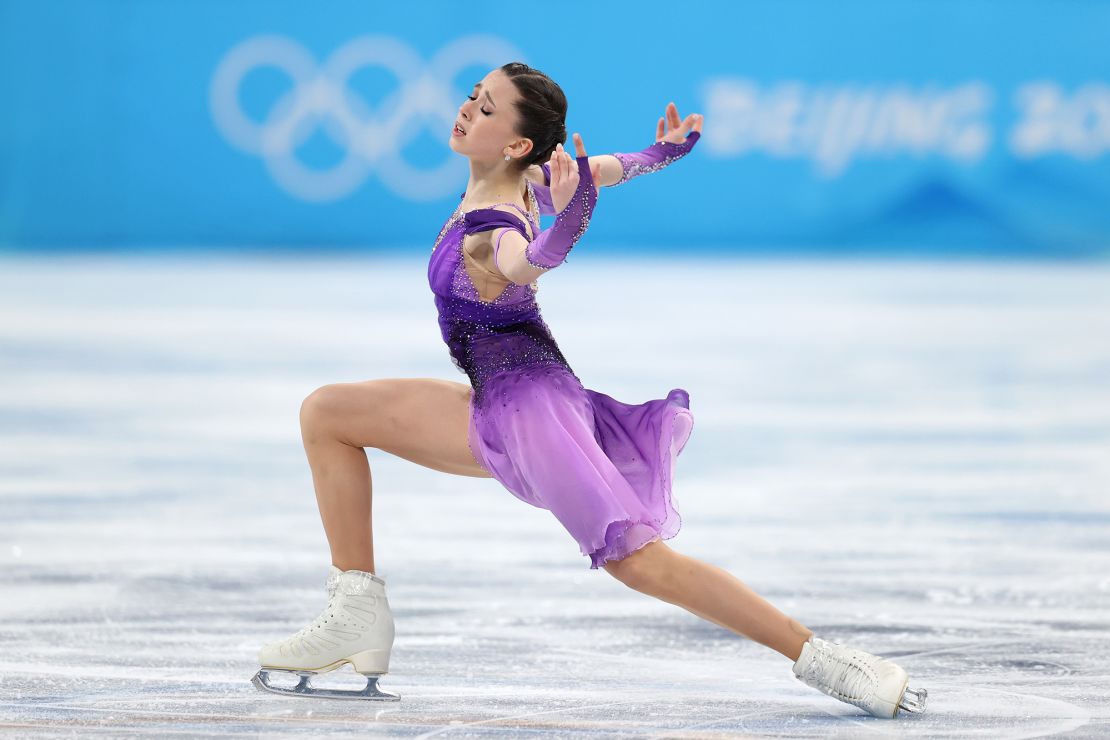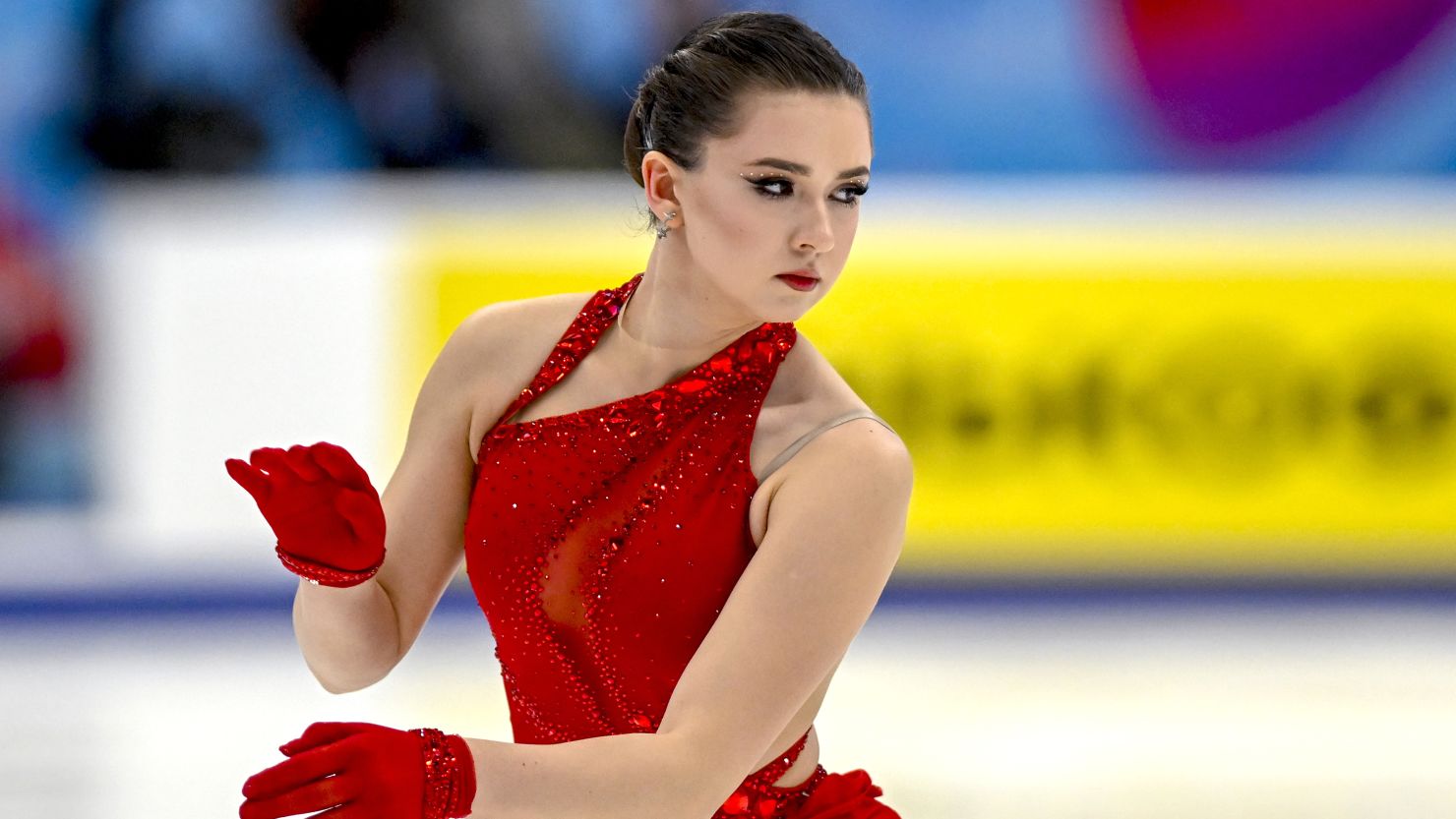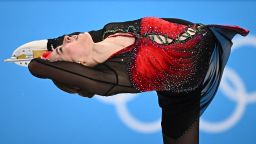The long-running doping saga involving Russian figure skater Kamila Valieva reached a landmark moment on Monday as the 17-year-old was handed a four-year ban.
In a statement, Switzerland’s Court of Arbitration for Sport (CAS) said that Valieva had been found guilty of an anti-doping rule violation from her positive test ahead of the 2022 Winter Olympics in Beijing.
The ban is backdated to December 25, 2021, which is when the sample was collected, and the highly-anticipated decision has been welcomed by anti-doping bodies around the world.
“The doping of children is unforgivable,” the World Anti-Doping Agency (WADA) said in a statement. “Doctors, coaches or other support personnel who are found to have provided performance-enhancing substances to minors should face the full force of the World Anti-Doping Code.”
Valieva was only 15 when she tested positive for trimetazidine, a heart medication which can boost endurance.
The results of the test came to light after the figure skating team event at the Beijing Winter Olympics, during which Valieva had led the Russian Olympic Committee (ROC) to a first-place finish ahead of US in second and Japan in third. Canada, meanwhile, finished fourth.
No medals have been subsequently awarded given the doping controversy, but Monday’s announcement from CAS is significant: the Swiss body said that the ban includes “the disqualification [of] all competitive results” achieved by Valieva since the positive test.

In its statement, CAS said that it had no “scope” to decide what will happen to the final standings of the team event, a responsibility that lies with the International Skating Union (ISU).
“The points Valieva earned by competing at the 2022 Beijing Olympic Games have been disqualified through this decision and it’s imperative that the ISU immediately handles the technical processes needed to reallocate the medals accordingly,” said Travis Tygart, CEO of the US Anti-Doping Agency (USADA).
“Then, the rightful winners of the Team Figure Skating event can celebrate their achievement and be recognized as the Olympic champions that they are. Of course, the moment to receive this recognition and the benefits that come from their sacrifice and hard work can never be replaced.”
On Monday, the ISU welcomed the decision from CAS and said it would publish a full statement “with regard to the implications” on Tuesday.
Meanwhile, Sarah Hirshland, the CEO of the US Olympic and Paralympic Committee (USOPC), said that the decision is a “significant win not only for Team USA athletes but also for athletes worldwide who practice fair play and advocate for clean sport.”
CNN Sport has contacted the International Olympic Committee (IOC), the Japanese Olympic Committee and the Russian Olympic Committee for further comment.
It’s taken almost two years of wrangling between various anti-doping bodies to reach what looks to be a conclusion from Valieva’s positive test.
But the ongoing uncertainty of the case means that skaters from the US, Japan and Canada are still “in the dark waiting to see if their medals will be reallocated,” according to sporting rights group Global Athlete.
“No athlete should have to wait for almost two years to be awarded a medal,” it said in a statement on Monday.
The Canadian Olympic Committee (COC) said it “applauds” the ruling by CAS, adding that it demonstrated “the importance of rigorous anti-doping measures in sport.”
“We believe today’s decision is an important milestone in this years-long case,” the COC said in a statement Monday.
“We once again congratulate the affected Team Canada athletes for their incredible performances two years ago, and their enduring strength of character during this long process.”
In December 2022, a Russian Anti-Doping Agency (RUSADA) commission said that Valieva bore no “fault or negligence” for the positive test from the previous year, while the skater has also said that the drug was ingested accidentally.
However, RUSADA’s ruling was appealed by the IOC and the ISU, and even a portion of the decision was appealed by RUSADA itself.
RUSADA had changed its initial stance and sought a punishment that “may include or be limited to a reprimand” for Valieva, CAS announced in February last year.
Even with the latest news of Valieva’s ban, Alexander Kogan, director general of the Russian Figure Skating Federation, said that he still views his athletes to be the champions in the team event.
“It was difficult to expect an objective decision in this situation,” Kogan said on Monday, according to state news agency RIA Novosti.
“The federation is not a party to the process; we received the information, [and] it will be carefully analyzed. We believe that Russian figure skaters are Olympic champions in the team competition.”
Russian athletes were competing under no flag as neutrals at the Winter Olympics in Beijing due to a previous ban for doping non-compliance.
In its Monday announcement, CAS said that the decision to ban Valieva for four years is “final and binding,” explaining that the parties can appeal to the Swiss Federal Tribunal “within 30 days on limited grounds.”
CNN’s Jill Martin, Thomas Schlachter and Anna Chernova contributed to reporting.


